What You Need to Know About Sensitive Skin
Sensitive skin affects 50% of women and 30% of men. Some people are born with sensitive skin and some develop as a result of exposure. Learn more!

A Guide For Sensitive Skin
Do you have sensitive skin? If you do, you're not alone. In fact, according to a recent survey, nearly 50% of women and 30% of men report having sensitive skin. So, what is sensitive skin? How do you get it? And more importantly, how do you treat it? Keep reading to find out.
Irritated
Sensitive skin is skin that is easily irritated. This irritation can be caused by several things, including but not limited to environmental factors, such as wind and cold weather; certain products, such as harsh cleansers or fragrant lotions; and medical conditions, such as eczema or rosacea. If you have sensitive skin, you may experience symptoms like redness, itchiness, dryness, stinging, and burning.
Triggers
While there is no cure for sensitive skin, there are ways to treat it. The first step is to identify the triggers that cause your symptoms. Once you know what sets off your sensitive skin, you can take steps to avoid those triggers or lessen their effect. For example, if you know that windy days make your skin red and dry, you may want to carry a heavy cream with you to help combat the effects of the weather.
Non-Irritating
In addition to avoiding triggers, there are also several things you can do to care for your sensitive skin. First and foremost, it's important to cleanse your skin gently with a non-irritating cleanser. Look for products that are fragrance-free and designed specifically for sensitive skin. You should also avoid using harsh scrubs or exfoliants on your delicate skin. Instead, opt for a gentle exfoliating cleanser with jojoba beads or enzyme-based exfoliators.
Hydrate and Moisturize
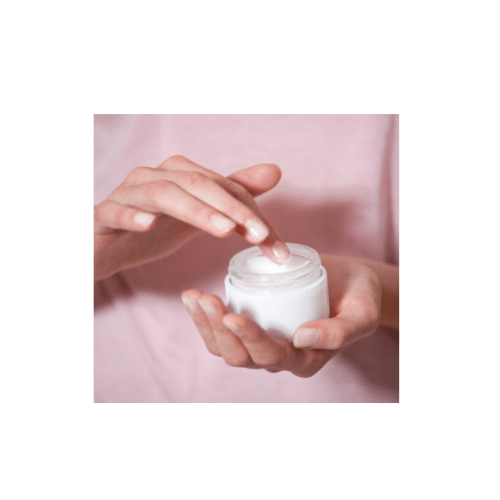
When it comes to moisturizing your sensitive skin, it's important to choose a product that will not only hydrate but also help to repair the barrier function of the skin. Look for products that contain ingredients like ceramides or hyaluronic acid. You should also consider using a facial serum in addition to your moisturizer. A good facial serum will help brighten dull-looking skin while also providing extra hydration.
Sunscreen is Your Friend
Finally, don't forget about sunscreen! Sensitive skin is especially susceptible to damage from the sun's UV rays. Look for a sunscreen that has an SPF of at least 30 and provides broad-spectrum protection from both UVA and UVB rays. And remember to reapply every two hours—even if you're not spending time in direct sunlight.
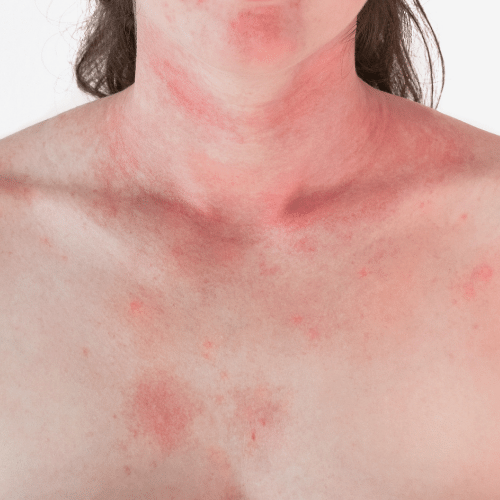
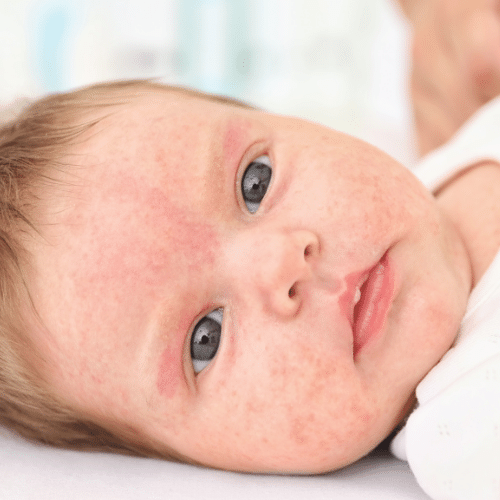
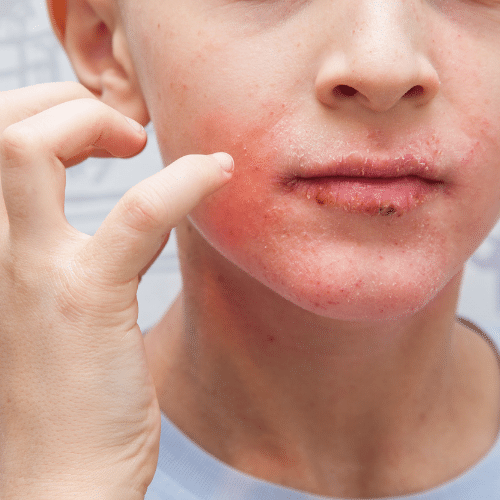
Feeling Dry
Sensitive skin is a type of skin that is easily irritated. People with sensitive skin may find that their skin is dry, itchy, or red after using certain products. Some people may be born with sensitive skin, while others may develop it due to environmental factors, such as exposure to UV light or pollution. Sensitive skin can be difficult to care for, but there are some steps you can take to help improve your skin’s condition. Keep reading to learn more about sensitive skin and how best to care for it.
What is Sensitive Skin?
Sensitive skin is a type of skin that is more prone to irritation than other types of skin. It is often dry, itchy, or red after using certain products. People with sensitive skin may also react to cosmetics, fragrances, lotions and creams, and other products that come into contact with their skin. Some people are born with sensitive skin, while others may develop it over time due to exposure to UV light, pollution, and allergies, exposure to certain chemicals and even medications can cause sensitivities.
Pay Attention
No matter what the cause, sensitive skin can be difficult to deal with. If you have sensitive skin, you may find that only certain products work for you and that you have to be careful when choosing new products to try.
Genetic
For people who were born with sensitive skin, this skin type can be inherited from birth. It's typically characterized by fine texture, and thin with blood vessels that lie close to the skin's surface.
Delicate
This type of skin is quite delicate and sensitive to external irritants and internal factors like stress, illness even PMS and hormonal changes. Blotchy skin tone, redness and heat, and or tingling characterize this type of skin. Often this type of skin will have underactive oil activity and can often be dry. Some reactions can include erratic breakouts or excessive oiliness. This type is considered overactive sensitive skin.
Skin Barrier Dysfunction
What is Skin Barrier Dysfunction?
One primary distinct attribute of sensitive skin is skin barrier dysfunction. Sensitive skin types have a difficult time with healthy barrier functions. Irritants on the skin surface can protrude into the skin and cause more disruptive functions. Flush and blushing can disrupt the skin over time with the loss of moisture from increased internal heat increasing skin sensitivity.
How to Treat Barrier Dysfunction
This skin type may develop eczema or bouts of dermatitis later in life. A predisposition to thin, delicate skin needs to be treated gently with improved immune functions, increased internal and external hydration, increased moisture, and barrier function health as your primary focus in addition to calming and soothing the skin.
Hot Water Can Hurt and Further Disrupt Sensitive Skin


One main primary focus should be avoiding hot, steamy water (showers or baths) as this can further trigger or irritate the skin and cause more dehydration.
Exfoliation
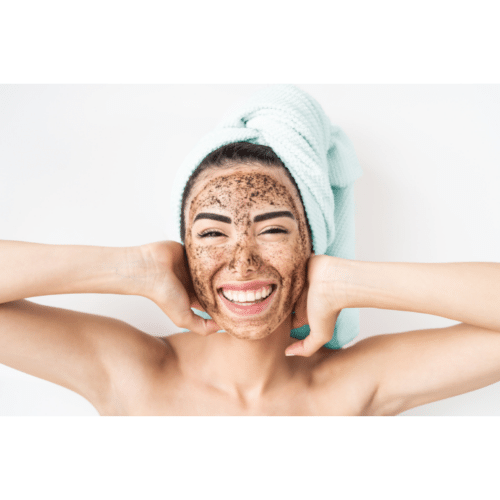
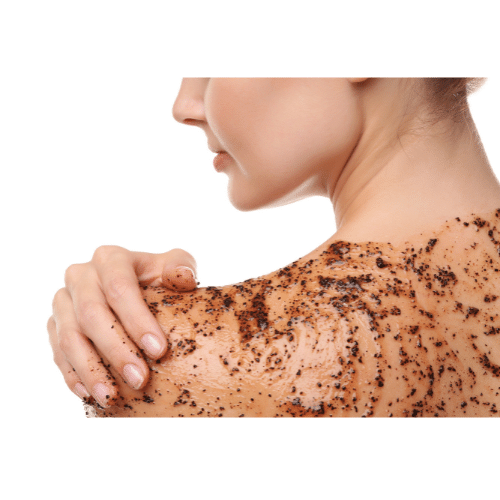
Exfoliation should be kept to a minimum especially if the skin is reacting or there is any type of inflammatory response. This skin type should not use heavy chemical peels or have exposure to the sun, cold, or wind as these can further disrupt the barrier function of the skin.
Avoid Harsh Treatments
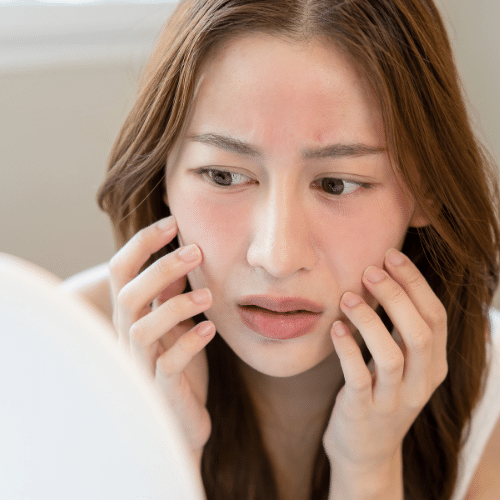

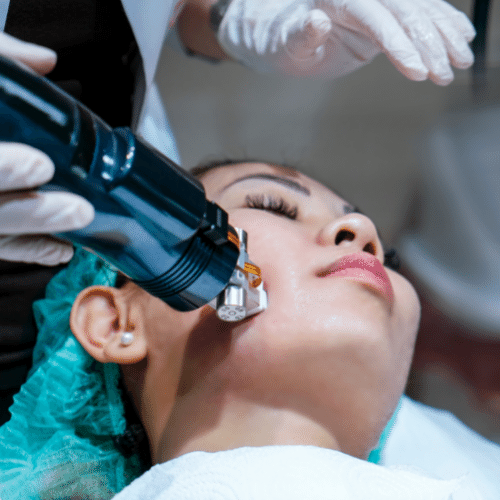
Avoid harsh cleansers, toners, and treatments such as microdermabrasion, micro-needling, and chemical peels such as TCA, Jessner, and even salicylic acid can be too harsh and stripping for this skin type.
No Waxing
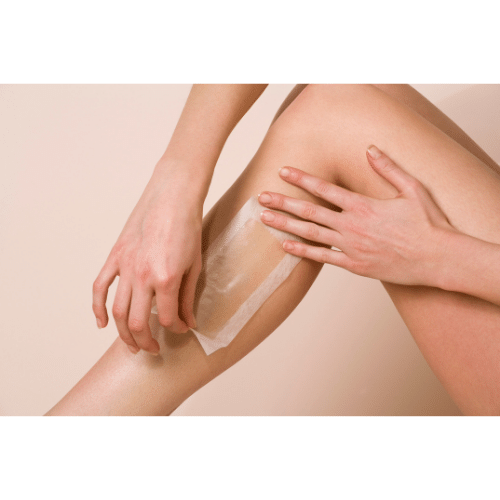
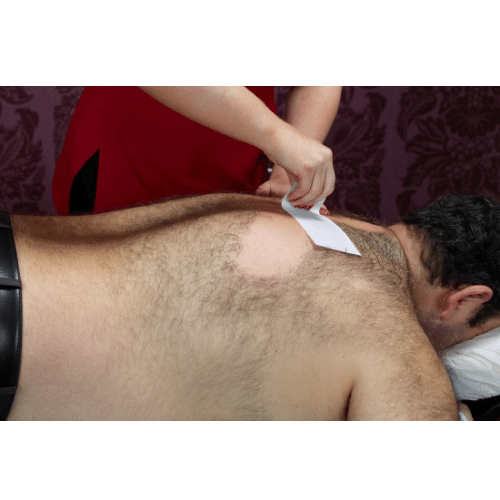
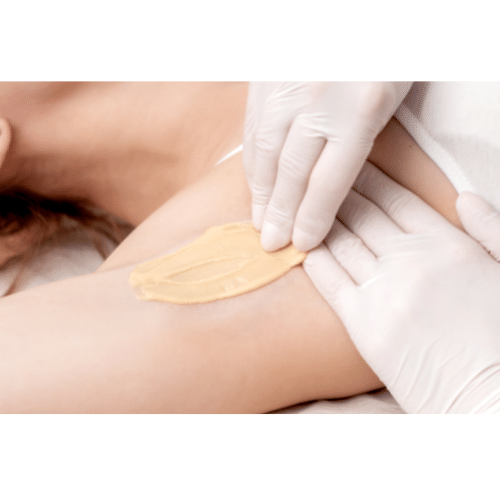
Waxing is not recommended, rubbing or heavy friction can stip the protective skin barrier function on sensitive skin. While sensitive skin also needs some increased cellular function, extra care must be taken to avoid overstimulating the skin for those who are sensitive.
Things that can cause sensitive skin:
- Medications
- Retin A
- Some Skin Lighteners can further thin the skin (the outermost layer)
How do You Get Sensitive Skin?

As we mentioned before, some people are born with sensitive skin while others may develop it over time. For those who develop sensitive or reactive skin over time, we refer to this skin type as sensitized skin. If you have sensitized skin, you may find that your skin becomes dry or irritated more easily than other people’s skin does. You might also notice that your skin is more reactive to certain products or ingredients than other people’s skin is.
How do You Treat Sensitive Skin?
If you have sensitive skin, there are some steps you can take to help improve your skin’s condition.
- First, make sure that you are gentle with your skin when cleansing it and applying any treatments or products. Avoid using anything harsh on your delicate skin; instead, opt for products that are specifically designed for sensitive skin types.
- You should also make sure to always wear sunscreen when outdoors as UV sunlight can further irritate sensitive skin.
- In addition, choose makeup and skincare products that are hypoallergenic and non-comedogenic so as not to clog your pores or irritate your already sensitized skin. Try out different products until you find ones that work well for your individual skincare needs!
- Check out this article on How to Make Hand Salve . It's great for sensitive skin and dry skin.
What Products are Good for Sensitive Skin?
When it comes to choosing products for your sensitive skin, it is important to opt for those that are hypoallergenic and non-comedogenic. Products that help rebuild the barrier function will include things like hydration and moisture. Ingredients to look for include essential fatty acids, Omega 3's, Evening Primrose Oil, Vitamin B's Niacin, Niacinamide, Vitamin A, Probiotics, Hyaluronic Acid, Ceramides, Essences can help, Aloe, Mirabilis Jalapa Extract.
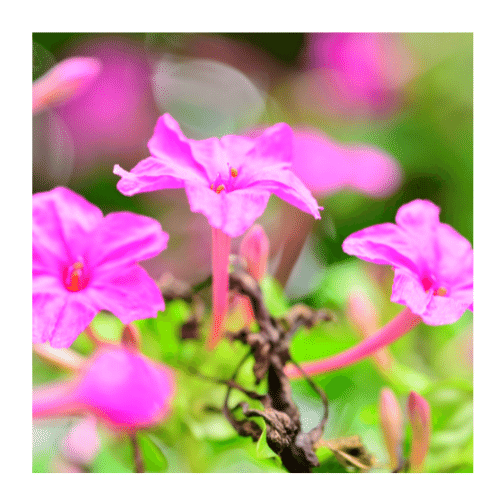
You should also look for calming products that contain ingredients like chamomile, lavender, calendula or green tea, and white tea, aloe vera which can help soothe irritated skin. And, as always, make sure to wear sunscreen!
Caution
Caring for sensitive skin can be tricky but hopefully, this article has provided you with some helpful tips on how best to do so! Remember to be gentle with your delicate skin and to always wear sunscreen when outdoors!
Final Word
Choose makeup and skincare products that are hypoallergenic and non-comedogenic so as not to cause any further irritation! With a little trial and error, you should be able to find the perfect products to treat your individual sensitive skincare needs!
Sign up for our email list today and get all the information you need straight to your inbox!
Thanks for reading!
Follow us on Twitter, Facebook, and Pinterest to stay in the know!
PAID ENDORSEMENT DISCLOSURE: As a staff of licensed aestheticians we review products based on their merit based on our professional expertise. This is not a replacement for your own skin therapist's advice for your skin or any medical claim or endorsement. We encourage you to seek medical care when appropriate. To support our website activities, we may receive monetary compensation or another form of recompense for our endorsement, recommendation, testimonials, and/or links to any products or services from this website as part of the Amazon Associate program or another Affiliate program. We Thank you in advance for your patronage

